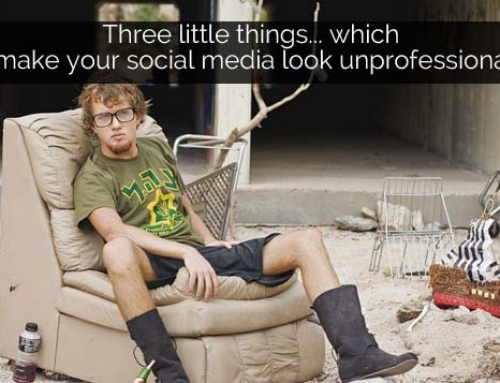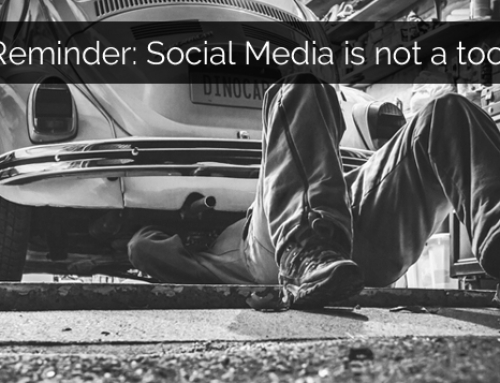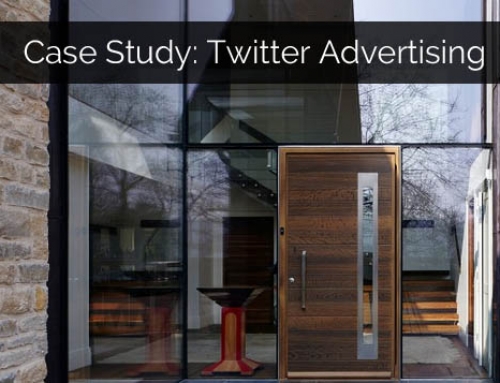To follow back, or not to follow back…that is the question.
This week has been a big one for Twitter training sessions with businesses, and in each of them we’ve had an interesting discussion about whether or not it’s important or appropriate to follow back Twitter accounts which are following you.
Ignoring followers is a common mistake we see many business Twitter accounts making, so we thought it would be worth sharing a few thoughts for this week’s blog.
Have a “follow back” policy
It’s worth thinking this through when you start developing a Twitter account for your business, firstly because it means you’ll start out the way you mean to go on, and secondly because knowing what you want to do in this respect will help you organise your daily Twitter tasks.
For most of our managed social media clients, our policy will be “if they’re relevant and real, absolutely follow them back“. Here’s why.
Why not?
At the absolute simplest level, “Why not?” is as good an answer as any. What’s the worst thing that can happen if you follow everyone back? You’ll end up with a very busy home feed, yes, but this can easily be managed by smart use of Twitter lists to ensure you don’t forget about your VIP contacts – and you need to learn to do this anyway if you’re going to be successful on Twitter.
The only other negative to this approach is that you end up following a number of spam / automated bot accounts, and / or in some cases accounts that might be inappropriate to your brand image – for example, Adult oriented accounts. Avoiding this is simple though – review your follower list and do your followbacks manually, and ignore those accounts.
Do your Twitter bio stats make you look rude?
If, on the other hand, you don’t bother following back, the impression you’ll be giving is much worse. Many users will take a quick look at your Twitter bio before deciding to follow you. If your followers: followed ratio makes it clear that you rarely follow people back, what conclusions might they draw?
“We’re lazy”
– We can’t be bothered to review our follower list and follow back. We probably won’t bother replying if you mention us, and in fact we probably don’t “get” Twitter at all.
“We’re arrogant”
-We expect people to want to follow us, but we don’t value that enough to acknowledge them. Only celebrity accounts can get away with this in the long term!
Both are off putting, so you may lose the potential follower right there.
Want to lose followers? Make them feel bad.
Let’s assume that your new follower wasn’t put off by your stats. They follow you, and you, basically, ignore them.Now, there’s no need to write a love poem to each new follower, or even greet them individually, although they’ll probably appreciate it if you do. Returning their follow, at least, shows that you’ve acknowledged their existence.
This might seem petty, but many individuals don’t want their personal Twitter account stats to scream “billy no mates”. If a large proportion of their followers don’t follow them back, they feel that that looks bad. They may well have a “prune” of their account and guess what? Unless you’re being spectacularly entertaining or valuable, your account will be first to get cut.
And now…the upside
All the reasons above are about avoiding negative perceptions. As our American cousins would say, why be a jerk? But there are positive benefits too from following back.
Your audience will grow faster – because you’re not putting off potential followers or losing those you have
You spot VIP contacts better – by reviewing who’s following you regularly, you’ll notice those accounts which could be especially important. Their business is a great fit for what you need in a partner, or they fit the criteria of a potential great customer for you. Give them some love – send them a mention to thank them for following, and start a conversation.
So there you have it. Review your followers regularly, and unless they’re spammy or inappropriate to your business (and of course, your definition of “inappropriate” will vary according to your type of business and objectives for Twitter), we’d gently suggest that you follow ’em back.
What do you think? Anyone have a good reason for not following, that we’ve missed?







Leave A Comment